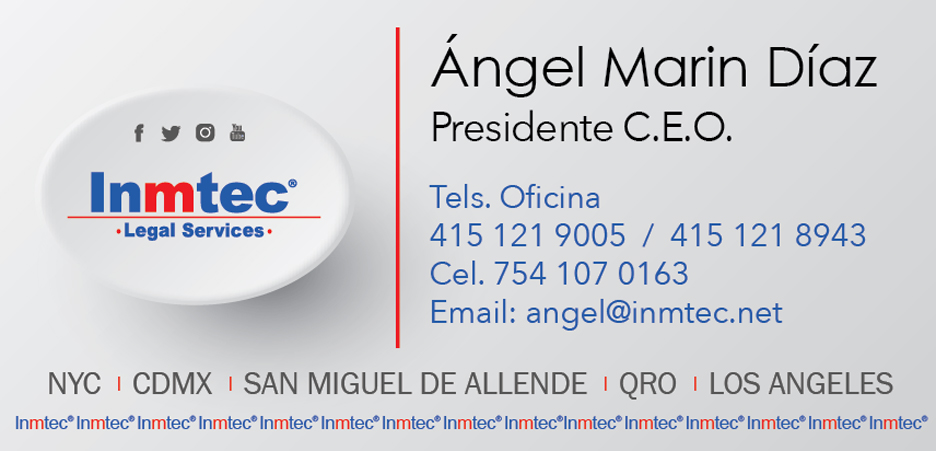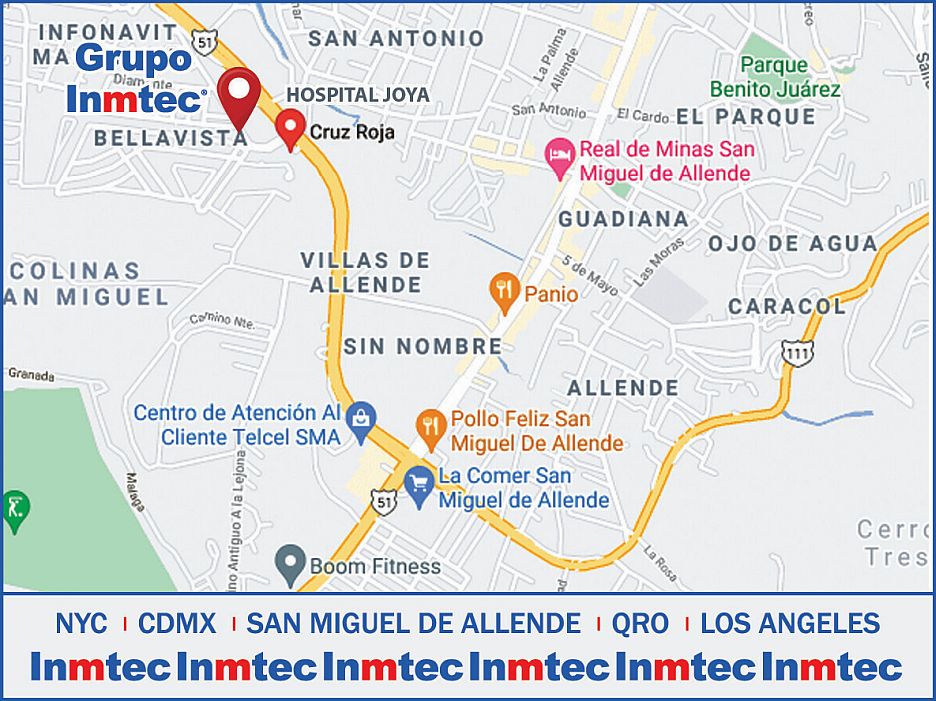Estate Planning in Mexico: Part 1 of 5 [] INMTEC Legal Services
News Category: News and Legal Forum
-
by Angel Diaz
Recently, I have been asked with great frequency, “What happens when, and if, I die in Mexico?” This may be due to the influx of “newbies” across the country, i.e., new residents who are increasing the size of our “guest community”—people spending a lot more time in Mexico. Whether looking for a lower cost of living, seeking an alternative to the political landscape in their country of origin, or searching for a more relaxing lifestyle, an increasing number of people, both young and old, are relocating to Mexico either part-time or full-time.
This will be the first article in a five-part “mini-series” that I’m writing over the next five weeks to help acquaint our guest community with the terminology, process, and benefits of planning appropriately for things such as medical advocacy, living inheritances, legacy bequeathments, estate planning, and the AfterLife™* program now available nationally in Mexico.
In between these weekly articles, I will use the biweekly “Q&A with Angel” forum to answer any questions you may have about estate planning, legacy bequeathments, and how to create a peaceful, legal transition of. I’ll also explain the differences between estate planning in Mexico and the country where you hold citizenship.
Let us begin with some of the relevant terms and definitions as we know them in the U.S. and Canada.
♦ The living will is a legal document used to state certain future health care decisions that need to be made when a person becomes unable to make the decisions and choices on their own.
♦ A durable power of attorney (POA) for healthcare, also known as a medical power of attorney, is a legal document in which you name a person to be a proxy or agent with the authority to make all your healthcare decisions if you become unable to do so.
♦ A do not resuscitate (DNR) order means that if you stop breathing or your heart stops, nothing will be done to try to keep you alive. In the U.S. and Canada, if you are in the hospital, you can ask your doctor to add a DNR order to your medical record.
♦ Advance directives give specific directions on what types of treatments and medications you refuse to accept. There are many advance directive formats. Some follow forms outlined in state laws; others are created by lawyers or even the patients themselves.
♦ The last directive and will provide a direct line of guidance and executions that the patient, once deceased, wishes to be carried out by specified executors, administrators, and inheritors.
It’s important to note that there are important differences between these documents and the way in which they are interpreted in the U.S. and Canada versus their Mexican counterparts. One such difference is that a DNR is not recognized in Mexico. The Mexican constitution takes a strongly Catholic point-of-view on DNR documents and states that, in essence, life is to be preserved by the medical field at all costs.
However, while Mexican constitutional law will not allow one to be “unplugged,” we are able to build specific guidelines into an advanced medical directive whereby one may decline to be “plugged in” to artificial life support, feeding machines, and respirators, thus creatively, and with great specificity, legally support a person’s end of life wishes.
Another substantial difference is the Mexican version of the durable power of attorney. In the U.S. and Canada, this document—as mentioned above—relates to medical advocacy (proxies and such). In Mexico, this document under Article 2600 of the CDMX code, leaves a time frame-sensitive POA for posthumous decisions that need to be made by the empowered party. Some of the powers that can be bestowed are the power to sign medical releases (very handy when there is a hospital stay before death), administration (bill paying), powers of dominion (the ability to sell the assets of the deceased), and the power to represent the wishes of the deceased in the probate process.
It is extremely important to note that all directives and wills prepared in another country will not be recognized in Mexico.
To be effective in Mexico, all documents must follow specific protocols that include, but are not limited to, being legally drafted under the legislated guidelines of each state, notarized, and translated by a certified translator as well as being registered in the various municipal, state, and national registries. Only then are they considered to be valid throughout the entire Mexican federation.
Before you start putting your wishes on paper, always make sure your legal representation is completely familiar with your wishes and needs, can communicate with you clearly in your native language, and, most important of all, has experience in these very specific and ultra-sensitive areas of the law.
Thank you all for your questions this week. For more specific information on Inmtec Legal Services™, Inmtec Title Services™, Inmtec Insurance™, Estate Planning, Asset Protection, and AfterLife™ Medical Advocacy by Inmtec™, please contact Angel Marin Díaz at info@…, 415 121 9005 or www.inmtec.net.
*AfterLife™ is a national program available exclusively through Inmtec™ that sees to the professional production of all the documents needed to oversee issues such as medical advocacy, pre- and post-death planning, the care and transport of physical remains, and all issues regarding probate and emergency contact communication with friends and family for the peaceful transition of assets.
INMTEC Legal Services.
San Miguel Allende, Gto.
Office 415-121-9005
INMTEC SERVICIOS LEGALES is a bilingual legal firm, offering legal advice, in Real Estate, Labor, Family and Corporate Matters, also counting with immigration procedures, as well as Litigation in Civil, Commercial, Criminal, Administrative and Tax Law. Our attorneys have four decades of experience in all the branches mentioned earlier. We focus on our clients with Enthusiasm showing great Interest, Professionalism, and Attention, reflecting these in your case, which likewise is done with efficiency and great performance. Making your experience with INMTEC SERVICIOS LEGALES pleasant and with the expected results. INMTEC SERVICIOS LEGALS offers offices in San Miguel de Allene and Mexico City, which are deserving of our clients and have the best technology and infrastructure to give our clients security and comfort during their process with INMTEC SERVICIOS LEGALES.
At your service Ing. Angel Marín Díaz, President and C.E.O. INMTEC SERVICIOS LEGALES S.A. by C.V Lic. Edgar Rayas Bautista Managing Director INMTEC SERVICIOS LEGALES S.A. by C.V




Leave a Reply